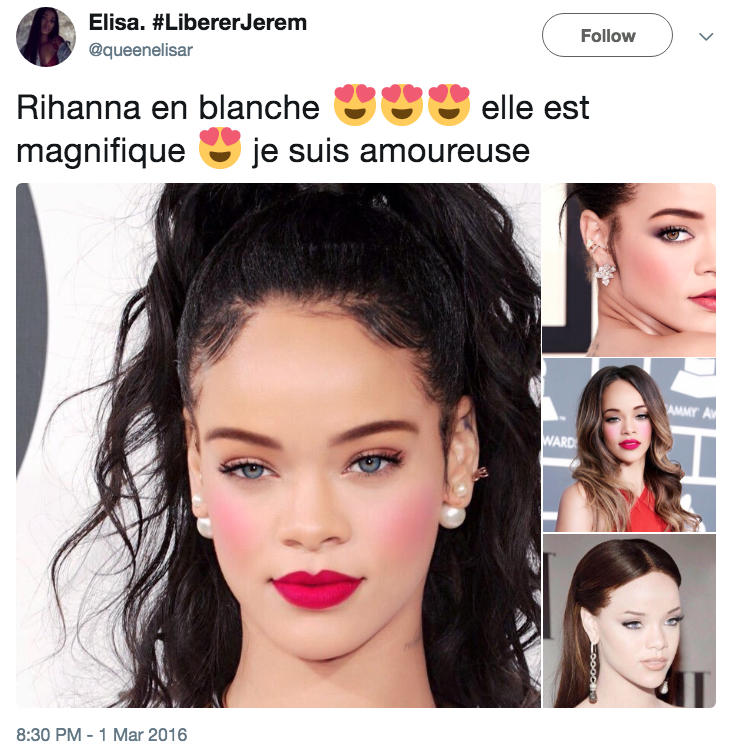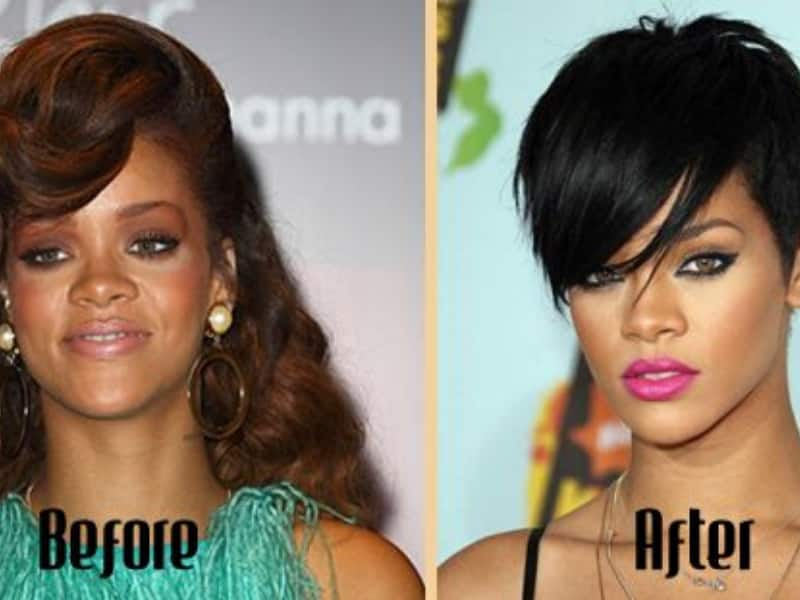


Not only is it easier to change your appearance fundamentally, it’s positively expected. Why this worrying regression? I put it down to the rise of the cult of celebrity and the increase in cosmetic surgery over the past 30 years or so. No one is saying the likes of Beyonce and Rihanna aren’t eminently talented it’s just that this fact is drowned out by all the emphasis on their looks. You can tell by how little today’s stars wear that titillation trumps talent.

And, despite the advances of feminism, I believe the expectations placed on our shoulders are heavier than ever. The pressure on famous women - of all races - to attain a certain ideal is enormous. For me, it manifested itself in an attempt to be skinnier than I naturally am. I’m the darkest of three sisters and love that fact - but I will admit to having felt the insidious pressure to conform that comes with any degree of fame. So why do all these women want to be whiter? Because the beauty ideal they all aspire to is blonde, blue-eyed Aryan, no less.Īs a performer myself, have I ever felt the need to make my appearance more Caucasian? The worst of these, a chemical called hydroquinone, is officially banned in the EU, but can still be prescribed by dermatologists for cosmetic reasons - and isn’t hard to find in the UK. More concerning is the booming market in illegal creams, soaps and pills, many containing highly damaging ingredients such as mercury, bleach and acid. Last year, High Street health store Holland & Barrett came under fire for selling a legal skin-whitening product, which it insisted was specifically for use on skin blemishes such as age spots, scars and freckles. Meanwhile, in India, where the caste system reinforces the desire for paler skin, nearly two thirds of the dermatological market consists of skin-lightening products.Ĭloser to home, dozens of perfectly legal skin-lightening products are widely available - from high-end Elizabeth Arden and Clinique to household brands such as Garnier and Vaseline. The lotions contain mercury and are totally unregulated. Women there are illegally injecting skin-bleaching creams intended to be applied topically, because they are said to work much faster that way. According to a report by Global Industry Analysts in 2012, it was set to be worth $10 billion (£6.5 billion) worldwide by this year.Ī particularly worrying trend, which we can only hope does not make it to UK shores, has recently emerged in Kenya. Skin-lightening has become a massive industry. With her tumbling blonde hair, the world’s highest-paid black music star of all time looked more Caucasian when she appeared this week


 0 kommentar(er)
0 kommentar(er)
